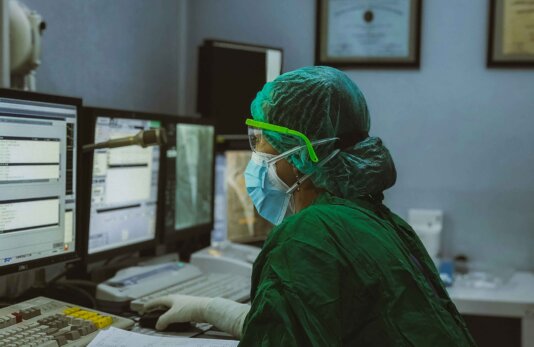- About
- Topics
- Picks
- Audio
- Story
- In-Depth
- Opinion
- News
- Donate
- Signup for our newsletterOur Editors' Best Picks.Send
Read, Debate: Engage.
| topic: | Health and Sanitation |
|---|---|
| tags: | #healthcare, #Liberia, #gender equality, #women's rights |
| located: | Liberia |
| by: | Yasmin Madan, Marion Subah |
Disclaimer: The views expressed in the article belong to the author(s) and do not necessarily represent the position of FairPlanet.
Universal health coverage is a basic human right, but far from a reality in many countries. In most parts of the world, community health workers – members within the community providing primary health services to their neighbours – are playing a crucial role in driving greater access.
When professionalised, community health workers can expand access to primary care, respond to pandemics like COVID-19, and strengthen the local economy with a 10:1 return on investment. Yet all too often, this workforce is unpaid, inadequately trained or equipped, not part of the national system and importantly, this workforce is primarily made up of women.
Universal health coverage demands that health systems are just and inclusive – yet this shouldn’t just apply to the patients we serve. We need just and inclusive work for women in the health workforce.
My own country Liberia is a particularly interesting case. Liberia recognised the vast potential of community health workers, especially after their heroic work responding to the Ebola epidemic, and has been leading the way over the last decade in formally recognising their work. There have been big leaps forward in paying and protecting Liberia’s community health workforce, but the journey has elevated some difficult but important lessons about the unintended impact of professionalisation on gender inequalities.
In 2016, then Liberian President Ellen Johnson Sirleaf launched the National Community Health Program. The program aimed to transition volunteers - who were primarily unpaid women - into a 5,000-strong community health workforce with standardised training, equipment, supervision, and, critically, a salary. The program was expected to be one of the largest employers of rural Liberians and included a commitment that women would make up 50 per cent of the workforce. Yet what happened next was in stark contrast to this aim of gender parity.
By 2021, men had taken over 80 per cent of paid roles within the program, meaning professionalisation actually left women behind. Research shows evidence of this pattern beyond community health. Take, for example, agriculture: Despite women accounting for nearly half of the world's smallholder farmers, they own less than 20 per cent of the world’s land. Their productivity is usually lower, not due to a lack of skills but as they are expected to take on additional unpaid domestic work.
This leads to further marginalisation as support programmes and subsidies prioritise so-called "market-ready" farmers, showing high yield rates and high productivity. Through such structural barriers, women remain in unpaid work, while men take up paid roles. Quotas can be an effective tool for achieving gender parity, yet without detailed policies and implementation plans to accompany them, they are not enough to dismantle systemic gender barriers.
So, how can we learn from Liberia’s experience?
Last Mile Health teamed up with the Liberia Ministry of Health and partners like Co-Impact to answer this question and identify the systemic barriers preventing women from professionalising and moving into paid roles:
These insights formed a bedrock of insight for a gender-responsive shift to the programme. One example of this was removing the requirement that community health workers must have a sixth-grade education. Instead, they must be able to read, write, and do basic arithmetic. We also adjusted teaching methods to be more inclusive for semi-literate and non-literate participants.
These changes are working. In our most recent round of recruitment in 2023 in Grand Bassa County, which is the last county that needs to be covered before the national program is fully scaled across Liberia, the number of new female community health workers had increased from 20 to 36 per cent. Though this is a step in the right direction, more progress needs to be made to not only recruit more women, but to create more opportunities for them to succeed as professionals.
The professionalisation of community health workers is critical for universal health coverage, but it must be done in a way that recognises the deep gender inequities that still shape our societies.
Liberia offers many lessons for other countries grappling with how to formally recognise and support community health workers, and ensure that this does not come at the detriment of gender equality.
Image by Irwan.
